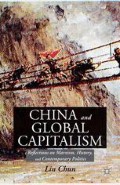Abstract
I have been using generic terms such as “the people” and “social,” which are at the same time candid class terms in Chinese political discourse for a threefold reason. First, their actual referents and symbolic signification are historically derived from the Chinese revolution, which was both national and class liberating in nature. Second, while creating a common constituency, the revolution was predominantly based on and powered by the laboring classes with an elaborated selfidentity of “worker-peasant alliance.” Third, due to uneven development conditioned by global capitalism, oppressed and especially revolutionary nations necessarily acquire a “class” position. In formulating the revolutionary strategy, the opening passage of a 1927 article by Mao is classic: “Who are our enemies? Who are our friends? This is the foremost question of the revolution.” Mao went on to delineate class identifications and relations of Chinese society in the immediate context of China’s great revolutionary mobilization of 1924–27.1 This primacy of the friend-enemy antithesis is a political sine qua non in the concept of an oppressed people in uprising, typified by “we the people” declared in the wars and struggles for democracy.2
Access this chapter
Tax calculation will be finalised at checkout
Purchases are for personal use only
Preview
Unable to display preview. Download preview PDF.
Notes
Compare the Chinese system with Marx’s idea in “The nationalization of the land,” written for the International Herald (no. 11, June 15, 1872). Marx argues that agriculture and all other branches of production should be organized “in the most adequate manner,” and “national centralisation of the means of production will become the national basis of a society composed of associations of free and equal producers, carrying on the social business on a common and rational plan.” He sees the project of nationalization of land as a “Social Necessity” due to capitalist modernization of agriculture, which requires large-scale farming receptive to modern technology and machinery. Ultimately, however, for him nationalization, as the proletarian state itself, is merely transitional. In a dialectic of the negation of negation, only communal organization or communism is the future. See http://www.marxists.org/archive/marx/works/1872/04/nationali-sation-land.htm.
The annual pace of reduction since 2008 has been 180 to 200 million mu, resulting in a land deficit of 390 million mu by 2012 (Yan Yuhua, “Worrying thoughts on our arable land ‘red line,’” China Reform Forum Jan 21, 2012, http://www.chinareform.org.cn/economy/Agriculture/Forward/201201/t20120122_132973. htm. According to the World Bank, China’s ratio of arable land in hectares per person was only 0.08 in 2009, http://data.worldbank.org/indicator/AG.LND.ARBL.HA.PC.
He Xuefeng, Global Times, Apr 6, 2012, http://opinion.huanqiu.com/roll/2012–04/2586575.html.
See He Xuefeng, Global Times, Apr 6, 2012, http://opinion.huan-qiu.com/roll/2012–04/2586575.html; and (He 2007).
Li Changping, “Chinese Villages Will Thoroughly Take the Philippine Road,” http://chinastudygroup.net/2008/12/chinese-villages-will-thoroughly-take-the-philippine-road/(Dec 23, 2008). See also China Left Review 1, Spring 2008, http://chinaleftreview. org/?page_id=98. “Latin Americanization” is a more common concern in the Chinese debate. See, for example, Wen Tiejun discussed in (Day 2008: 54–55).
Chen, Xinhua Net, Feb 1, 2013.
Copyright information
© 2013 Lin Chun
About this chapter
Cite this chapter
Chun, L. (2013). Class, Direct Producers, and the Impasse of Modernization. In: China and Global Capitalism. Palgrave Macmillan, New York. https://doi.org/10.1057/9781137301260_6
Download citation
DOI: https://doi.org/10.1057/9781137301260_6
Publisher Name: Palgrave Macmillan, New York
Print ISBN: 978-1-349-45345-0
Online ISBN: 978-1-137-30126-0
eBook Packages: Palgrave Political & Intern. Studies CollectionPolitical Science and International Studies (R0)

